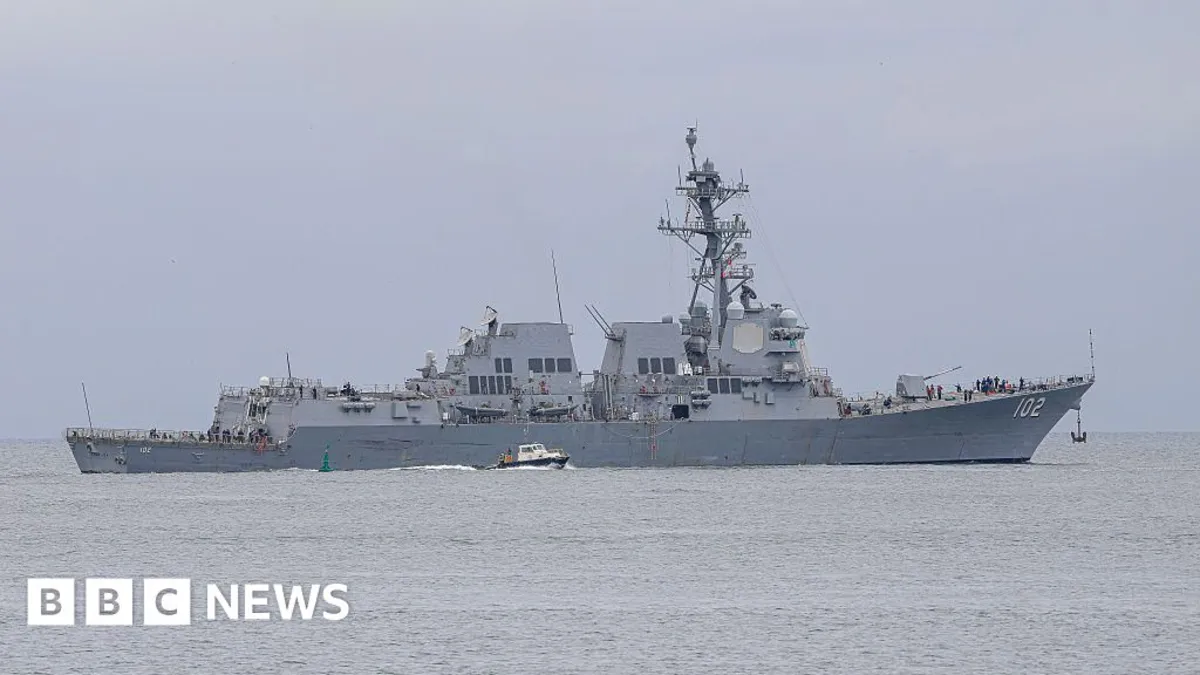
In a significant operation aimed at combating drug trafficking, US forces have conducted a strike against a vessel in the Pacific Ocean, which was alleged to be transporting illegal drugs. The Pentagon confirmed the operation, which resulted in the deaths of two individuals on board the vessel, while no US personnel were harmed during the engagement. Defense Secretary Pete Hegseth stated that the vessel was already known to US intelligence and was identified as operating along a recognized trafficking route in international waters.
This recent strike marks the eighth operation conducted by US forces against suspected drug-laden boats since September 2, 2023, and it is notably the first operation executed in the Caribbean. Footage from the strike showcases a long, blue speedboat navigating the waters before being targeted by US ordnance. Hegseth emphasized that narco-terrorists attempting to smuggle drugs into the United States will find no safe haven within the hemisphere. He likened their operations to those of Al Qaeda, stating that both groups pose a significant threat to the security of the nation.
In a recently leaked memo addressed to US lawmakers, the Trump administration indicated that it has recognized a non-international armed conflict with drug-trafficking organizations. This acknowledgment comes as the administration continues to escalate its military response to drug trafficking activities. To date, at least 36 individuals have lost their lives in US strikes against vessels accused of drug trafficking, including a notable operation against a semi-submersible craft in the Caribbean.
During a previous strike, two men survived the attack and were subsequently repatriated to their home countries, Colombia and Ecuador. The Ecuadorian government later released one of the men, identified as Andrés Fernando Tufiño, citing a lack of evidence against him. Meanwhile, the other survivor from Colombia reportedly remains hospitalized. The ongoing operations have raised questions about the identities of those killed and their affiliations with specific drug trafficking organizations.
The location of the latest strike and the origin of the targeted vessel remain unclear. However, this operation coincides with escalating tensions between the Trump administration and the Colombian government led by President Gustavo Petro. Recently, Trump publicly criticized Petro, labeling him an illegal drug leader who is promoting extensive drug production across Colombia. He also announced the cessation of US subsidies to Colombia, a nation that has been a long-standing ally in Latin America.
Both Colombia and Ecuador possess extensive Pacific coastlines, which experts note serve as critical routes for drug trafficking into the United States, primarily through Central America and Mexico. According to estimates from the Drug Enforcement Administration (DEA), the majority of cocaine destined for US cities is trafficked via the Pacific Ocean. While drug seizures in the Caribbean have accounted for a smaller portion of the total, US officials have raised alarms about the increasing trend of drug trafficking in these waters.
As part of this ongoing operation, approximately 10,000 US troops, along with numerous military aircraft and naval vessels, have been deployed to the Caribbean region, focusing their efforts on disrupting drug trafficking activities. The US government continues to monitor the situation closely and is committed to taking further actions as necessary to safeguard national security.